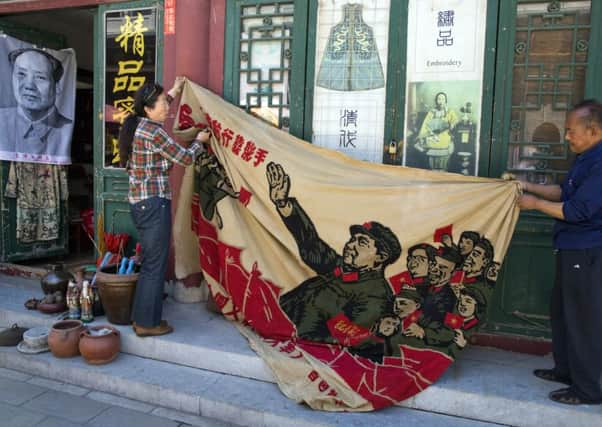China largely ignores 50th anniversary of Cultural Revolution


On 16 May 1966, the ruling Communist Party’s Politburo met to purge a quartet of top officials who had fallen out of favour with its leader Mao Zedong.
It also produced a document announcing the start of the decade-long revolution to pursue class warfare and enlist the population in mass political movements.
Advertisement
Hide AdAdvertisement
Hide AdThe start of the Cultural Revolution was not widely known or understood at the time, but soon took on an agenda characterised by extreme violence, leading to the downfall of leading officials, mass rallies and the exile of educated youths to the countryside.
Despite the party’s formal repudiation of the movement five years after it ended, traces of the Cultural Revolution can still be seen in China’s authoritarian political system, the intolerance of dissent and uncritical support for the leadership, said veteran journalist Gao Yu.
Ms Gao said her initial enthusiasm for the Cultural Revolution faded after fanatical young Red Guards raided her home and accused her father, a former ranking party cadre, of disloyalty to Mao.
“I saw so many respected teachers in universities and high schools get beaten up,” Ms Gao said. “The movement wasn’t so much a high-profile political struggle as a massive campaign against humanity.”
A long-time party critic, Ms Gao, now 72, was allowed to return home last year on medical parole after being imprisoned on a state secrets charge related to her publicising a party document about ideological controls.
Ms Gao and others say cynicism in Chinese society still lingers from the Cultural Revolution, when students were called on to denounce authority figures, including teachers and even parents. Traditional morals and philosophy were attacked and Buddhist temples were defaced and destroyed.
No official events were held to commemorate the anniversary, although neo-Maoists have been staging private commemorations.
Newspapers monitored in Beijing provided virtually no coverage of the anniversary apart from small articles mentioning demand for antiques dating from the era.
Advertisement
Hide AdAdvertisement
Hide AdEgged on by vague pronouncements from Mao, students and young workers clutching their leader’s famed “Little Red Book” of sayings formed rival Red Guard factions starting in 1966 that battled each other over ideological purity.
The Cultural Revolution finally came to a close with Mao’s death on 9 September 1976. In the aftermath, Deng Xiaoping emerged as the country’s leader.